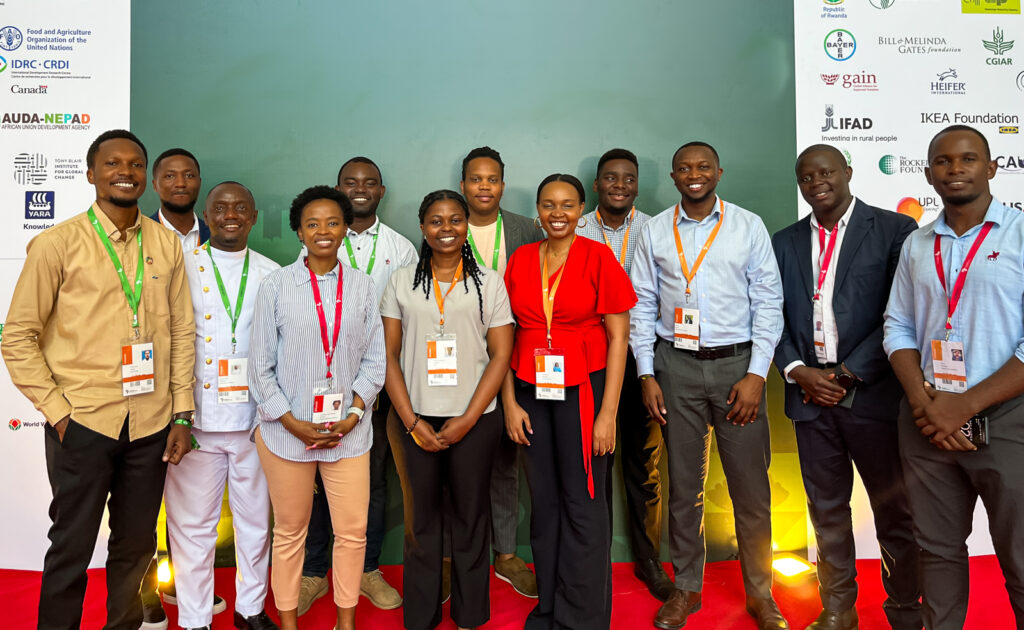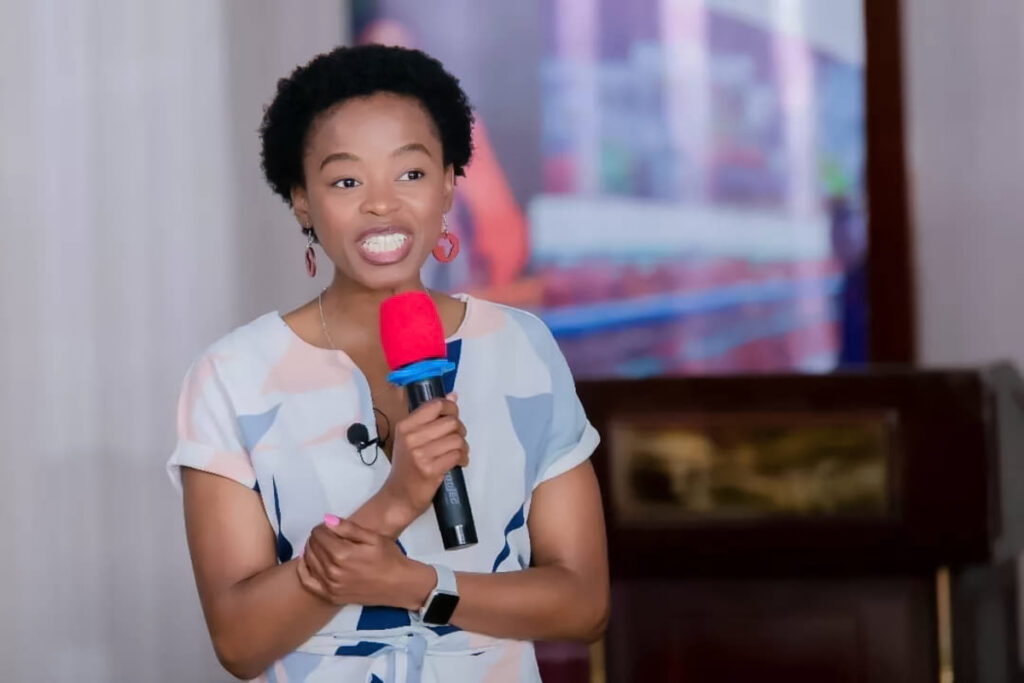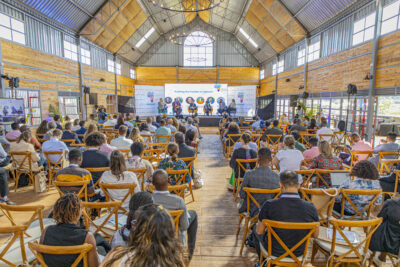News
In this partner profile we speak with Nono Sekhoto of African Leadership Academy’s AL for Agribusiness Network (ALAN) to hear how the network drives agriculture sector growth across Africa and fosters lifelong connections.
Established in 2020 as part of the African Leadership Academy’s network strategy, ALAN supports the career development of young leaders while providing them with exposure to the African agriculture sector.
“We believe young people want and need to be connected to each other, creating pan-African connections, while accessing the right opportunities to advance,” shares Nono. “We achieve this by engaging with relevant stakeholders, whether they are industry leaders, organisations, governments, or other key players in the sector; those who can open opportunities for our young leaders to participate.”
Young people in the agriculture sector face many challenges. They may feel isolated by its rural nature, or have limited understanding of the required skills. “What’s important is to paint a different picture,” says Nono. “In the past agriculture was seen as a last resort. We want it to be the first choice.”
“We are highlighting the various skills that can thrive in the sector. Agriculture can be a huge job creator because it goes across the value chain – from farms to production, processing, and exporting, all the way up to branding, marketing, and finance. Fostering these skills offers rich opportunities for young people, while changing the face of Africa by building our economies.”

Photo: Nono Sekhoto with ALAN network members at the Africa Food Systems Forum in Dar es Salaam, Tanzania in September 2023
Thomas Caffrey Osvald, Small Foundation’s Networks and Systems Lead, reflects, “Networks offer us an opportunity to engage with complex problems related to the rural business ecosystem, such as lack of youth engagement in agriculture. ALAN has created a highly effective means for young people to connect, coordinate, and collaborate, not just with one another, but with peers and leaders across the agribusiness sector.”
Advancing opportunities through the network
According to Nono, changing perceptions of the sector and attracting emerging talent are crucial for a thriving future. Equally important is transforming how knowledge is shared. “Young people arriving in this sector need to be able to navigate it. However one systemic issue is that it is hard to understand where to start, and how to get help. Everything is ambiguous and closed, almost secretive. We have to ask the question ‘How do people succeed in this sector?’”
“That’s where the network mindset and theory come in. The network provides an opportunity to bring the various parties together on a level playing field, where they can find value and contribute. The connections that we facilitate, whether a young person with new ideas and skills though lacking insider knowledge, or an industry leader who knows all the steps but is in search of new talent to enrich their organisation, can each benefit from knowing each other. As the young leaders develop their connections and learn the steps, they come to understand the value of peer relationships and knowledge-sharing, raising each other up to access once opaque opportunities that are now transparent.”
Beyond the learning and intergenerational knowledge exchange, Nono illustrates how the network serves its members over time. “If I’m in South Africa and want to start a venture, I now know someone in Zimbabwe who has done this and can pick up the phone to engage with them and access their knowledge. Or if I’ve got produce that I’d love to export, I know three or four people that I can reach out to in different countries to say, ‘I want to export, how do I do that?’ That all happens from building trust-based relationships through the network.”
A lifelong network for systemic change
Although ALAN is only three years old, its members have already established new ventures and assumed influential positions: from collaboration on an app to enable access to finance for Kenyan farmers to a government cabinet appointment in Lesotho.
“Currently on this continent young people are less valued than older people,” says Nono, “and that is a hard mindset to change. However, as our young people grow into leadership positions across Africa, they will remember from their experience in the network what it was like to be valued at a young age. They will understand the importance of interacting with the ideas and skills of a younger generation, and can continue to engage through our network, completing the circle of opportunity and creating the right conditions for success.”
“We are instilling ethical leadership and a sense of African pride in our young people, so they are rooted in who they are. That sense of pride, opportunity, and possibility creates a new system for the future of Africa, where young people can play their part and feel valued. By investing in the future of our agriculture sector, we can become food secure and our exports can generate revenue, changing our communities and our standing in the world. Agriculture touches so many aspects of our continent, and if it thrives as we foresee, Africa will become a different place to live – and it is our young leaders that will make that happen.”
Small Foundation has supported ALAN through a multi-year grant since 2021.




